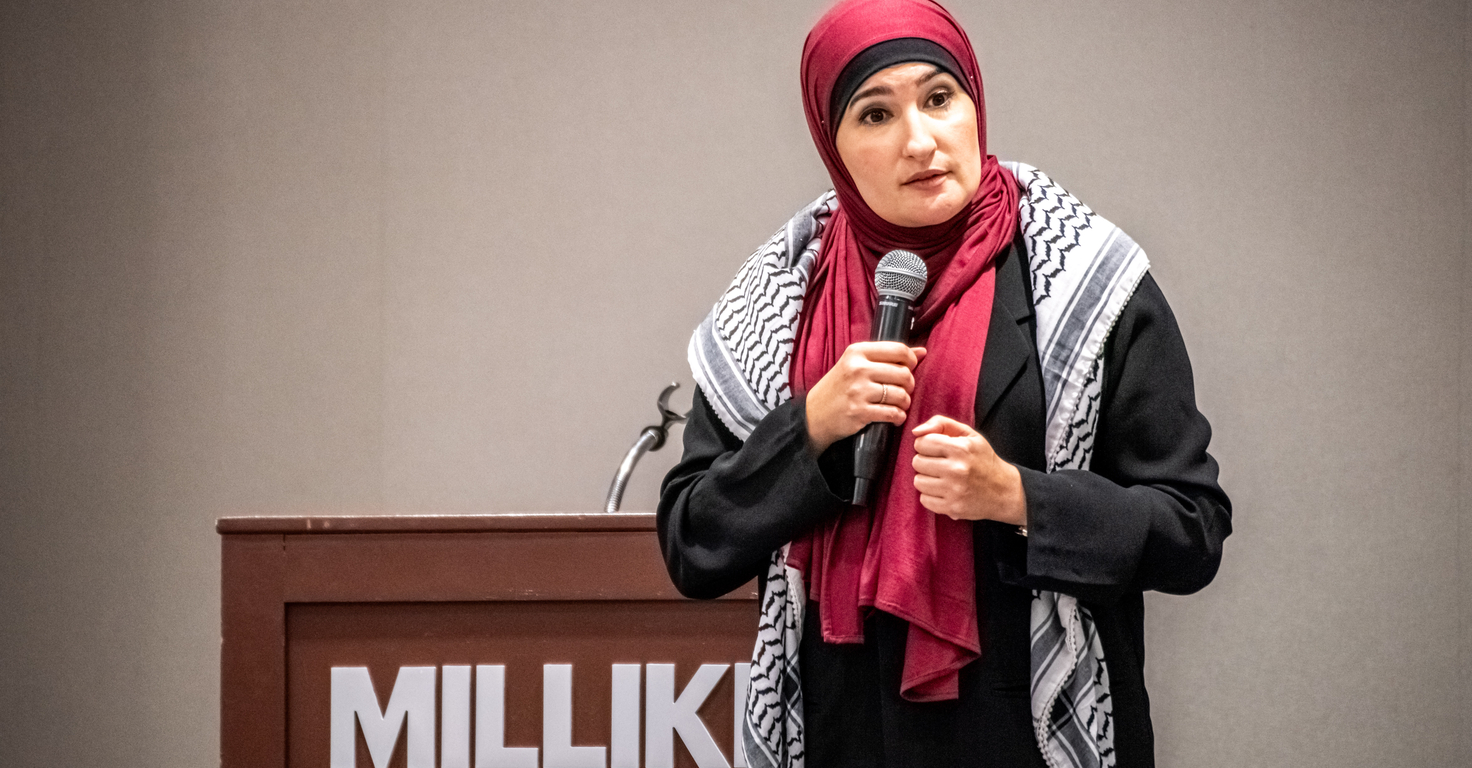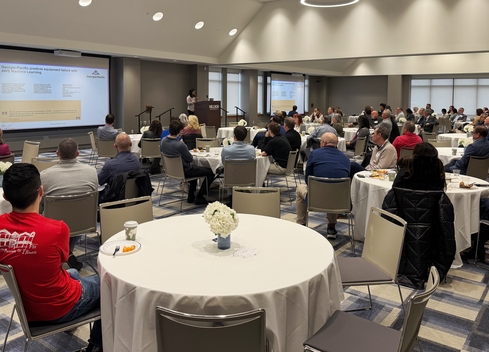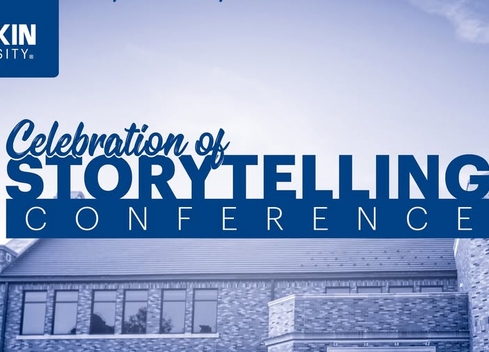DECATUR, Ill. – When Millikin University welcomed noted civil rights activist Linda Sarsour to campus, she began her presentation by remarking on the current political climate in the United States and thanked the university for its bravery in bringing her to campus as part of the Spring 2025 Samuels Lecture and a Women’s History Month event.
I'm deeply honored to be the T.W. Samuels Lecturer, and I hope to uphold the legacy of Mr. Samuels with pride. I said this earlier, and I think it's quite brave, and I could even say courageous, in this current political moment, to invite someone like me to your campus,” she said. “I do not take that lightly, and I'm deeply honored and humbled in ways that I can't put into words. Thank you for giving me this opportunity.”
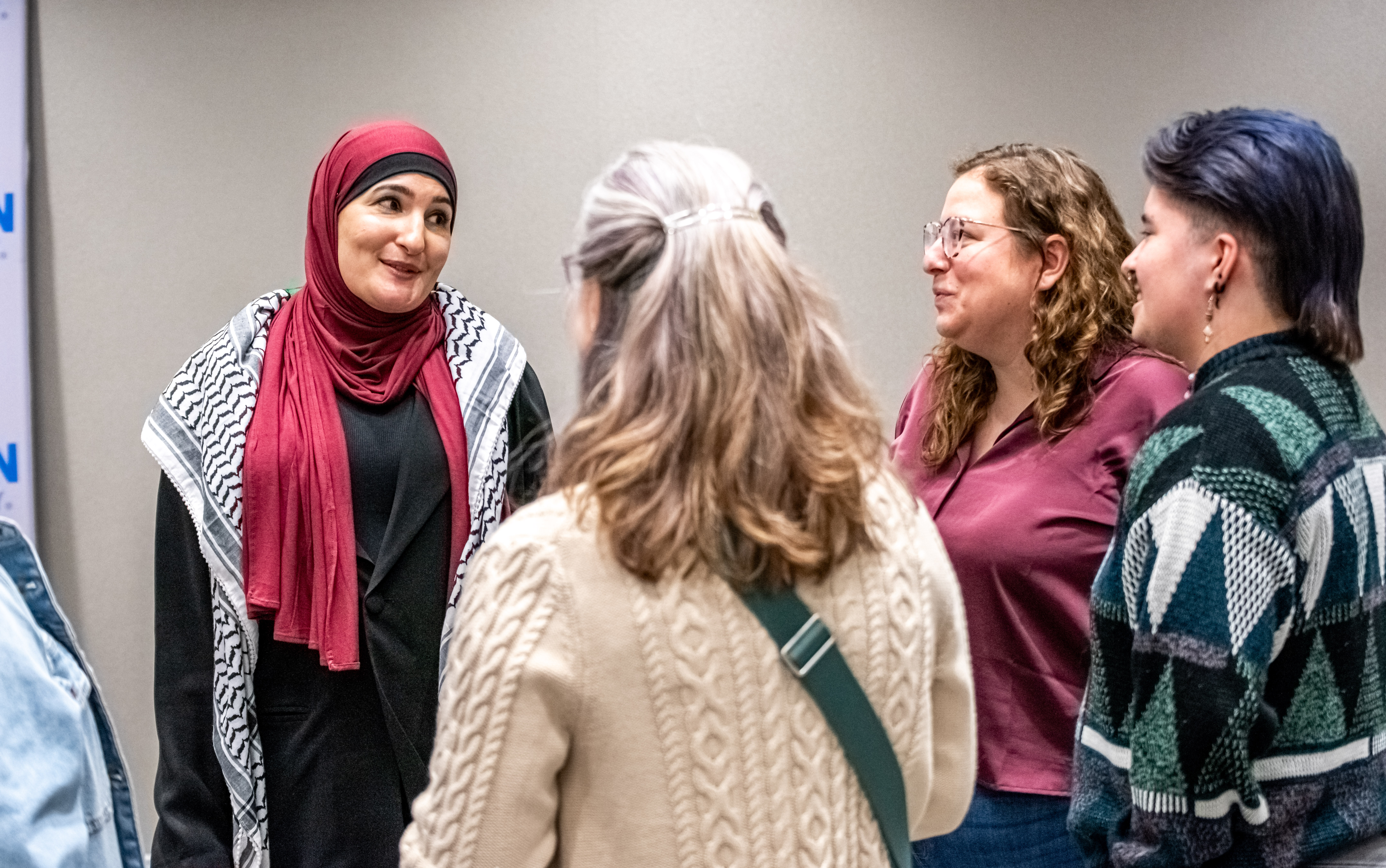
The T.W. Samuels Lecture Series is used to bring great thinkers and speakers to Millikin for community enrichment, and Sarsour’s message of peace and the importance of building a strong and resilient community.
Sarsour is a Palestinian Muslim American and co-founded the first Muslim online organizing platform, MPower Change, as well as Until Freedom, an intersectional racial justice organization focused on direct action and power building in communities of color. She is the author of “We Are Not Here to Be Bystanders: A Memoir of Love & Resistance,” published by Simon & Schuster.
“We're living in a moment right now where very powerful people are trying to divide and conquer us, and they're using and weaponizing certain issues to do that. So the question is, what do we do? We can reject it,” Sarsour said. “We don't allow people to use us in these moments to divide us from our colleagues and neighbors. If you are someone with whom I disagree, I don’t want to see harm come to you. I don't want someone to silence you. This is a moment for us to return to the essence of community.”
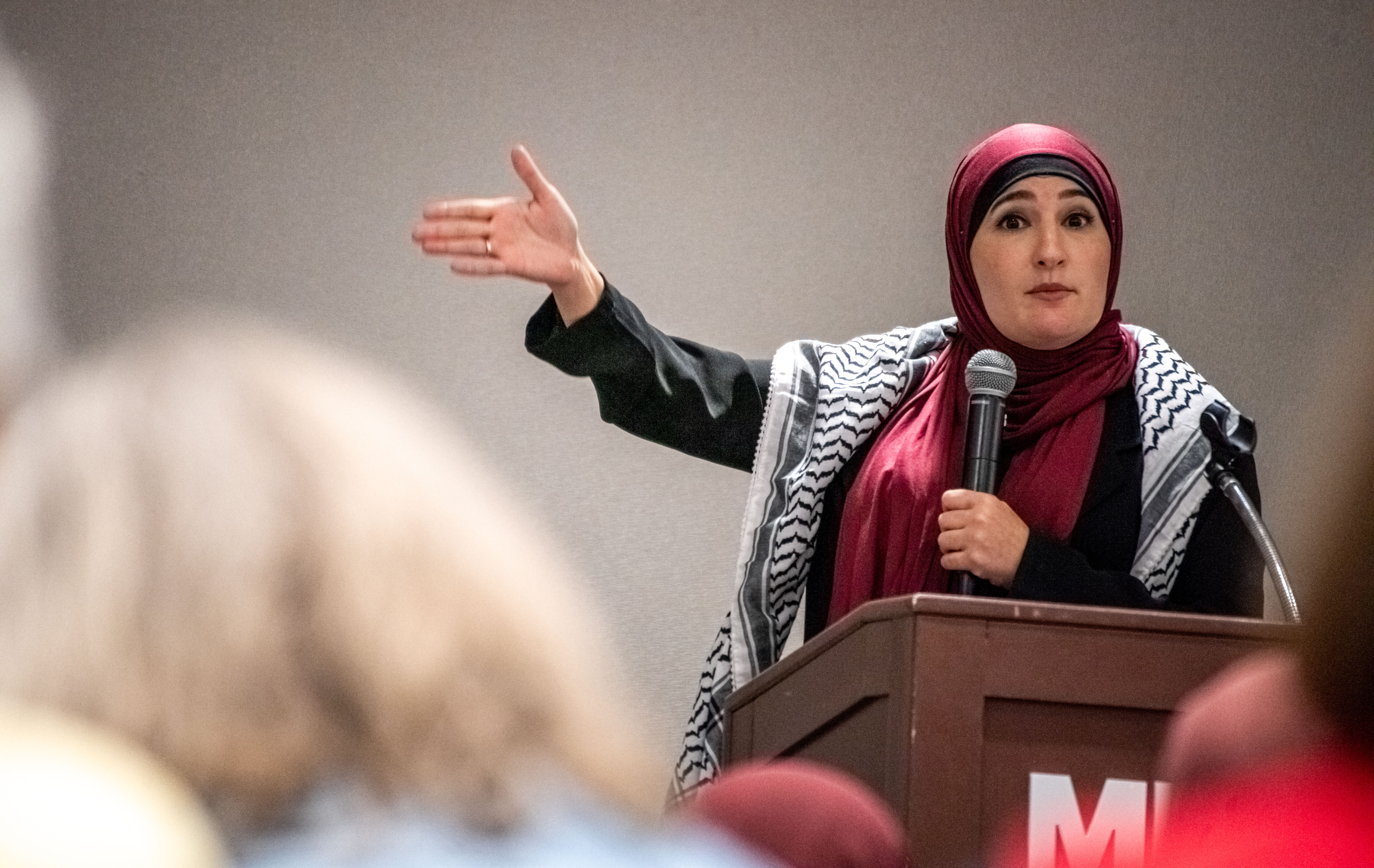
Sarsour was one of the national co-chairs of the largest single-day protest in US history, the Women’s March on Washington, D.C. She shared that a large march is being planned in 2026 in Washington to commemorate the 250th anniversary of the signing of the Declaration of Independence in 1776.
“Our initiative is called “Next 250” because we will have just completed 250 years. We know what this country has done and been through for 250 years. There have been trials and tribulations, and the question is, how are we walking into the next 250 years?,” Sarsour said. “We have a responsibility to set that narrative in this generation. Next 250 is about retelling the story of the last 250 years to make sure that no community’s story is left out. Another part is developing a Declaration of Interdependence. How do we move and evolve as the United States of America? We hope that 30 years from now, someone will look back at 2026 and see it as a moment in history where we helped shift and transform.
